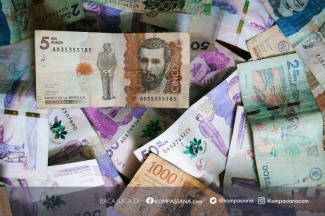Following up on IJEPA in the Investment to Automotive Sector, the Coordinating Minister for the Economy of the Republic of Indonesia made a Working Visit to Tokyo
Airlangga Hartarto, Coordinating Minister for Economic Affairs of the Republic of Indonesia met with the Minister of Economy, Trade and Industry (METI) of Japan, having his address at 1-3-1 Kasumigaseki, Chiyoda-ku, Tokyo 100-8901 Koichi Hagiuda, in Tokyo, Monday, July 25, 2022. The working visit of Coordinating Minister Airlangga to Japan was carried out in order to follow up on several issues, including the completion of the General Review of Indonesia Japan Economic Partnership Agreement (IJEPA), market access for tuna exports and automotive investment, especially electric cars. Another agenda item at the meeting was the development of cooperation in the Forum Public and Private Dialogue Track 1.5: Japan Indonesia Co-Creation Partnership for Innovative. "The Government of Indonesia and the Government of Japan have agreed on a number of areas of cooperation, namely the development of human resources (capacity building), digital technology, supply chain and promotion of green industry. This includes a human resource development project in collaboration with the Bekasi Education and Training Agency (BPPK) or better known as CEVEST.
The Indonesia Japan Economic Partnership Agreement (IJEPA) is an agreement regarding an economic partnership between Indonesia and Japan based on the principles of the EPA (Economic Partnership Agreement). The IJEPA was signed by the Heads of State of Indonesia and Japan on August 20, 2007 in Jakarta and has been effective since July 1, 2008 (entry into force/EIF). IJEPA is based on three main pillars, namely liberalization, facilitation of investment/trade and cooperation. Indonesia-Japan trade after the implementation of IJEPA for the period 2009-2017 increased by 155% where exports grew by 101.7% and imports by 322.1%;
Coordinating Minister Airlangga's meeting with Minister Koichi was held at the METI office. The meeting was also attended by the Minister of Industry Agus Gumiwang Kartasasmita, a number of Echelon I Officials of the Coordinating Ministry for the Economy and the Ministry of Industry. This meeting was a continuation after Koichi met Airlangga in Jakarta in January 2022.
Indonesia and Japan have completed the IJEPA general review in 2019. Currently, protocol discussions are still being held between the negotiating teams of the two countries. Coordinating Minister Airlangga also raised a number of important issues that are still pending in the discussion, namely related to Indonesia's demand for market access for canned tuna exports to Japan.
Indonesia sees that there is a complementary between demand in Japan and supply in Indonesia for this tuna product, so Indonesia hopes that Japan can lower tariffs for Indonesian tuna products so that Indonesia has the same level playing field as other countries in the region.
Currently, Japan imposes tariffs on Indonesia at 4-5 percent above Thailand for tuna exports. In addition, the meeting also discussed the investments made by the Japanese government in the Indonesian automotive industry. The progress of cooperation in the automotive industry between the two countries has been very good. A number of Japanese companies also continue to increase their investment commitments in Indonesia.
According to Japan's METI Minister, Mitsubishi has committed to start the production of electric cars in Indonesia in early 2023 with the aim of expanding the export market. Besides Mitsubishi and Toyota, Nissan will also develop electric car production in Indonesia. Nissan plans to use other technologies that are also environmentally friendly, and is already considering using hydrogen-based fuels.
Minister Koichi said the Japanese Government was very pleased that both sides had looked in the same direction, and hoped to be able to resume discussions at this meeting soon. We can continue this discussion, either through in-person discussions or online. I have plans to come back to Indonesia, to continue this good relationship.
During the meeting, Coordinating Minister Airlangga also delivered a response to the Japanese Government's request regarding the policy of radio-active free certificates for agricultural, fishery and food products from Japan.
Previously, the Indonesian government banned agricultural, fishery and food products from Japan from entering Indonesia because it was suspected that it was contaminated with the Fukushima nuclear reactor leak when the tsunami hit Japan some time ago. However, currently, said Airlangga, the Government has issued Regulation of the Minister of Agriculture Number 12 of 2022 concerning Food Safety Supervision of the Importation of Food of Animal Origin and Fresh Food of Plant Origin into the Territory of the Unitary State of the Republic of Indonesia from Radioactive Pollution.
